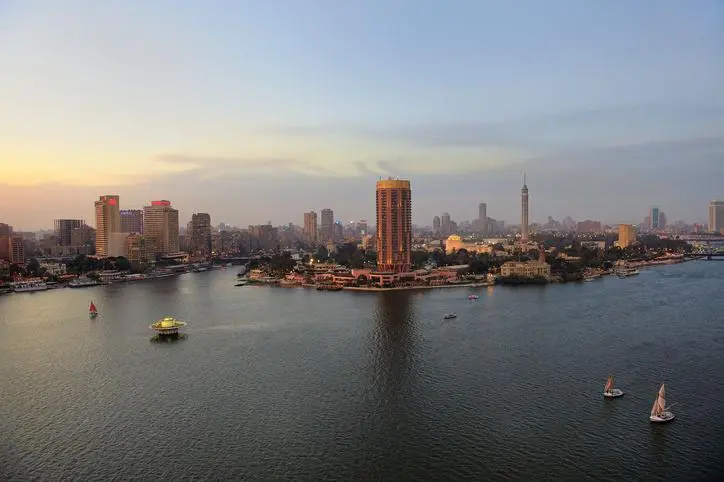PHOTO
Cairo – Egypt's Minister of Finance, Mohamed Maait, said Egypt’s economy has doubled three times during the six past years at rates surpassing the government’s debt rates.
During the previous fiscal year (FY) ended 30 June 2022, the most populous Arab nation recorded a growth rate of 6.60% of the gross domestic product (GDP), the highest since 2008, compared to an international average growth rate of 3.20% for emerging economies, according to a recent press release.
During FY21/22, Egypt’s budget deficit decreased to 6.10% of GDP, compared to 13% in FY12/13. For the fifth year in a row, an initial surplus of EGP 100 billion was registered, representing 1.30% of GDP.
At the same time, budget revenues grew by 19.60%, expenses rose by 14.80% annually, whilst tax revenues increased by 18.70% in FY21/22.
Additionally, remittances paid by workers living abroad hit a new record at $32.20 billion and Suez Canal recorded its highest-ever revenue of $7 billion during FY21/22.
Meanwhile, spending on education and health jumped by 23% and 21%, respectively, exceeding the annual growth rate of budget expenses.
In June 2022, Egypt's unemployment rate retreated to 7.2%, with 826,000 job opportunities provided. Furthermore, the debt‑to‑GDP ratio reached 87.2% last June, compared to 103% in June 2017. This is compared to a global governmental debt ratio of 99% of the global GDP. The finance ministry aims to reduce the debt‑to‑GDP ratio to 75% by 2026.
The external debt remained unchanged at $81.4 billion last June, representing 19.2% of the GDP. This is compared to $81.3 billion in June 2021.
Some 77% of the government debt is internal owed to Egypt-based institutions and individuals whilst the remaining 23% is external owed to international institutions in hard currency, according to the statement.
Over the period from 2016 to 2022, the debt‑to‑GDP ratio tumbled by 15.6% when compared to a rise of 19.5% in emerging countries.
During the period from July to March of the previous FY, Egypt’s petroleum exports amounted to $13 billion, with a surplus of $4 billion. Meanwhile, non-petroleum exports registered $19.4 billion, up 33% year-on-year (YoY).
The minister emphasised that the country’s exit from some economic activities aims to empower the private sector, increase its contribution to the total executed investments to 65%, and attract foreign direct investments (FDIs) worth $10 billion yearly during the upcoming four years.
In the current FY budget, spending on wages hiked to EGP 400 billion.
During the period from 2018 to 2022, pension payments went up by 70%. The Public Treasury Authority (PTA) is set to pay EGP 190.5 billion for the pension system, a YoY growth of 5.9%.
More than EGP 542 billion were transferred to pension funds during a 38-month period to disburse pension payments and increase the financial solvency of the pension system, the statement read.
All Rights Reserved - Mubasher Info © 2005 - 2022 Provided by SyndiGate Media Inc. (Syndigate.info).





















